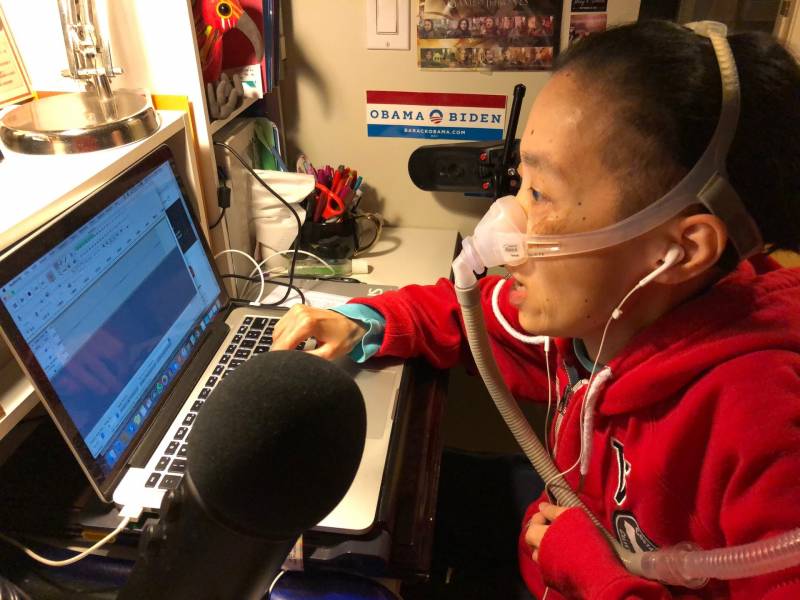The Pandemic Has Disrupted Our Routines. This Activist with Autism Says ‘We Can Create New Ones’
When you’re living with a disability, getting access to emergency services, like a food pantry or drive-through coronavirus testing, can be hard. Some folks rely on caregivers to get them to appointments, or have conditions that make it dangerous to leave their homes. For a lot of people with autism, losing that daily routine can be disarming. That’s what Héctor Ramírez is dealing with right now. Ariella Markowitz has a story about what it’s like for him sheltering in place, and creating new routines.
A Conversation with Disability Rights Activist Alice Wong
Sasha talks with disability activist and writer Alice Wong about what it feels like to be a wheelchair and ventilator user during the COVID-19 pandemic. "This pandemic lifted the veil on people trapped in institutions who face maximum risks with minimal protections," says Wong. "I mourn and burn with rage at the numbers of deaths and infections in nursing homes and prisons because they are my people. No one is disposable and no one is truly invisible." Wong is the host of the Disability/Invisibility podcast. She's edited a collection called Disability Visibility: First-Person Stories from the Twenty-First Century, due out in June.
How One Sonoma County Teacher Turned His Garage into a Tactile Production Center
Today, we’ve been exploring how the pandemic has exposed so many ways people with disabilities are especially vulnerable to isolation, or cut off because they can’t access tools that keep them connected and engaged. KQED’s Julia McEvoy brings us the story of an educator in Sonoma County who works with kids who are visually impaired. He’s been getting creative about making sure his students can keep learning.

